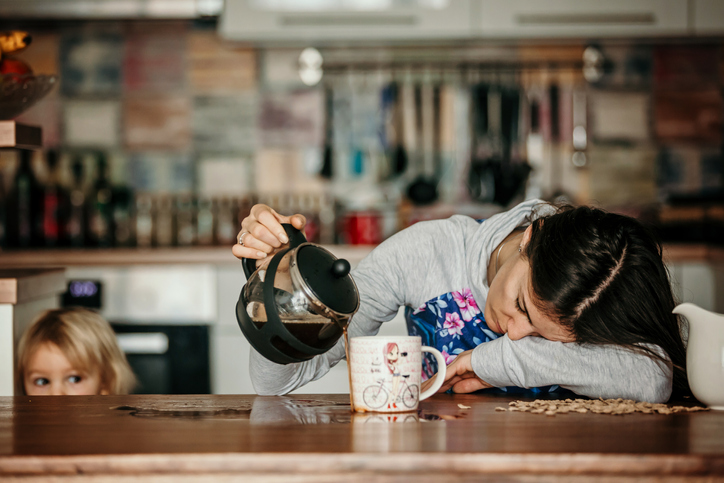Opinion
the depth of fatigue
Is it possible to be even more exhausted?
Yes, this is much worse than it has been. Yes, we’re simply exhausted. Yes, we have no more to give.
Winters are always hard for people. We are more isolated, we hole up in the warmth of our homes, we get quiet. We gain weight (like that hasn’t been part of the entire pandemic), we move slowly, we feel tired.


iStock
The level of fatigue, verging on despair, is rising. We begin to see a possible end with the vaccine rollout, but we don’t feel much better. As a rabbi said to me last week, “I’m just sad. Sad all the time.” He didn’t know if it was the spate of funerals, the illnesses of congregants, the upcoming year anniversary of COVID or simply the depth of his fatigue that was making him sad — and frankly, it doesn’t matter. We’re sad. Knowing that we’re sad is sufficient.
This sadness seems universal right now. There are reports of long waiting lists for therapy, especially in our nonprofit clinics. I don’t know to whom I can still refer people — everyone is so busy. Therapists and clergy — and all of us — are holding too much pain. Our pain and the pain of others. Depression — much more serious than the sadness most of us are experiencing — is deeper and lasts longer than historically.
Some of our exhaustion is decision fatigue. While we can see the possibility of increased interactions with others, every single behavior demands consideration and decisions. Do I see my vaccinated friends in my home? In a restaurant? Do I attend a meeting? Is it safer to travel by car, by plane? Vaccines open us to huge numbers of decisions with very little guidance. And these decisions have to be made over and over again.
Re-emergence also forces us to relearn skills that have lapsed. What are relationships without Zoom? Human relationships are based on a social contract that demands some basic mutual trust – that each of us will stop at red lights; that we pay for items we take from the store; that my words have decipherable and universal meaning. This social contract has been severely undermined by the last year. Can we re-create it? We miss it.
I have spent much of the pandemic teaching all over North America. I can be in Denver in the morning, Toronto in the afternoon and Dallas at night. Does Zoom move with us into the future? Each of these sessions allows me to “drop-in” to other communities. What they don’t permit is the development of deeper relationships. While it’s much easier to do webinars from the comfort of my dining room table, I miss the conversations AFTER the talk — the moments when we share important stories, the questions that are too personal to share in a group, the drive to the airport, the conversation over cookies at the Oneg. I miss the informality of human contact.
Re-emergence will also allow us to consider what we’ve learned in COVID times. It seems increasingly clear to me that schools are rarely run for students – they are based on very old models that work for parents and administrators – but not students or teachers. Our children need so much more than learning. They need social skills; they need to be cared about; they need food. I so wish we could throw our education system up in the air and remake it in a way that is student-focused. How can we grow the whole child, the child who walks in the door every morning? We know that adolescent suicide increases in September and October – can there be any greater evidence that schools can be very bad for kids? Should we be afraid of reopening schools and the emotional damage it may do?
We are in a time of deep communal grief. We grieve half a million dead, our freedoms, our choices. We are afraid for our families, our friends, our communities. The days are short and cold and the news is relentless. It’s okay to be sad. It’s okay to expect less of yourself. It’s okay that somedays a shower feels like a success. Let yourself move slowly without dumping shame on your sadness. Exhaustion breeds exhaustion. Stress breeds stress. Be gentle. Be patient. Be kind.
Betsy S. Stone, Ph.D., is a retired psychologist who currently teaches as an adjunct lecturer at HUC-JIR. Her classes include Human Development for Educators, The Spiritual Life-Cycle, Adolescent Development and Teens In and Out of Crisis. She is a regular contributor to eJewish Philanthropy.












